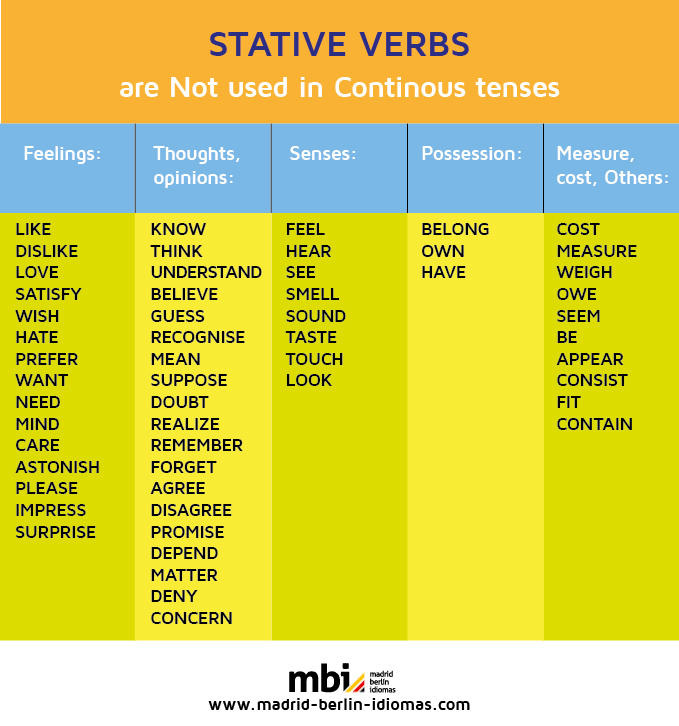STATE OR STATIVE VERBS
Some English verbs, which we call state, non-continuous or stative verbs, aren’t used in continuous tenses (like the present continuous (ejercicios del 27 al 36), or the future continuous). These verbs often describe states that last for some time. Here is a list of some common ones:

A verb which isn’t stative is called a dynamic verb, and is usually an action.
Some verbs can be both stative and dynamic:
| Be |
be is usually a stative verb, but when it is used in the continuous it means ‘behaving’ or ‘acting’
- you are stupid = it’s part of your personality
- you are being stupid = only now, not usually
|
| Think |
- think (stative) = have an opinion
I think that coffee is great
- think (dynamic) = consider, have in my head
what are you thinking about? I’m thinking about my next holiday
|
| Have |
- have (stative) = own
I have a car
- have (dynamic) = part of an expression
I’m having a party / a picnic / a bath / a good time / a break
|
| See |
- see (stative) = see with your eyes / understand
I see what you mean
I see her now, she’s just coming along the road
- see (dynamic) = meet / have a relationship with
I’ve been seeing my boyfriend for three years
I’m seeing Robert tomorrow
|
| Taste |
- taste (stative) = has a certain taste
This soup tastes great
The coffee tastes really bitter
- taste (dynamic) = the action of tasting
The chef is tasting the soup(‘taste’ is the same as other similar verbs such as ‘smell’)
|




